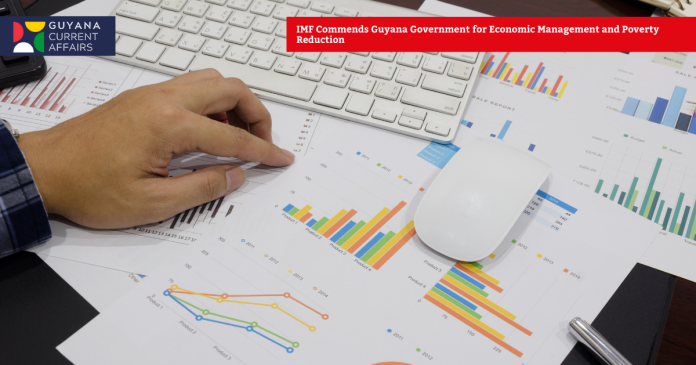The International Monetary Fund (IMF) has praised the Government of Guyana for its effective management of the economy and significant strides in reducing the poverty rate. Guyana, currently experiencing rapid economic growth, has been recognized as having the world’s fastest-growing economy, with an average GDP growth rate of 47% from 2022 to 2024.
Economic Growth and Diversification
The IMF noted that Guyana’s economic transformation is driven by rapidly expanding oil production and strong non-oil output, particularly in the construction and service sectors. Real GDP and real non-oil GDP are projected to grow by about 10¼% and 13% in 2025, respectively. This growth is supported by large-scale public infrastructure investments and a robust fiscal policy stance.
Poverty Reduction and Social Transfers
The IMF highlighted that social transfer policies implemented by the government have increased disposable income and reduced the poverty rate. These initiatives include measures such as one-off cash payments to households, free university tuition, and minimum wage increases. The IMF suggests that additional targeted transfers, integrated into a medium-term fiscal framework, could further support inclusive growth and help Guyana advance faster toward achieving its Sustainable Development Goals, particularly the goal of ending poverty.
Fiscal Management and Sustainability
The IMF commended Guyana’s commitment to maintaining macroeconomic stability and ensuring fiscal sustainability. The government’s efforts to diversify the economy, improve infrastructure, and enhance access to social services have been lauded. However, the IMF also emphasized the importance of closely monitoring macroeconomic trends to prevent overheating and maintain a balanced expansion path.
Future Outlook
Guyana’s medium-term economic outlook remains highly favorable, with balanced risks. The economy is expected to grow on average by 14% per year over the next five years, driven by robust oil production and a growing non-oil sector. The IMF noted that further oil discoveries and productivity-enhancing investments could bolster Guyana’s economic prospects, while risks such as commodity price volatility and climate shocks could impact inflation and the macroeconomic outlook.
Overall, the IMF’s endorsement of Guyana’s economic management underscores the country’s potential for sustained growth and development, provided that fiscal discipline and inclusive policies continue to guide its economic strategy.


